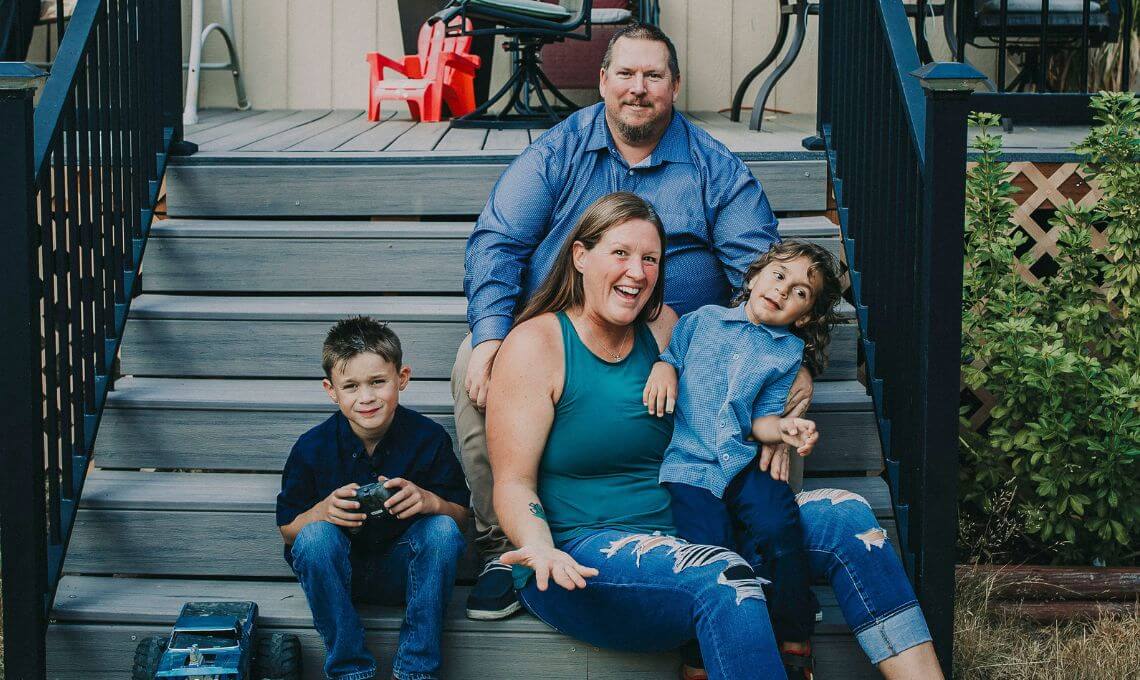Every county shares concerns about housing
Anyone who has bought a home or searched the rental market knows that the cost of housing far exceeds the budgets of many Oregon families. The first issue brief from the Oregon Voices survey highlights the housing issue in the words of the people who are living through it. The findings are clear: Oregonians of all backgrounds and in all parts of the state are adversely affected by the housing crisis.
Oregon Voices is an innovative survey from The Ford Family Foundation that shares insights into the lived experiences of more than 4,000 households across Oregon. Although the survey asked few questions focused on housing, so many Oregonians voiced their concerns that the research team chose this topic for their first analysis.
“Even those with housing security recognized the effects of the housing crisis on their community, whether it was urban or rural,” says Kasi Allen, the Foundation’s lead researcher and director of the Learning and Knowledge Management department. “They can see the challenges and struggles of their neighbors. They tell us that affordability affects them in other ways, such as limiting their community’s workforce and contributing to growing homelessness.”
Oregon Voices respondents focused their concerns on affordability, housing satisfaction and availability. Here’s what they had to say.
Affordability
The top concern for respondents across all demographics is the lack of affordable housing. Renters especially identified affordability as a problem, in both urban and rural areas. It’s a problem with a big ripple effect, as survey participants noted its effects on issues such as shortages of people to fill jobs, particularly in health care and education.
“Housing is incredibly difficult to find for any price. I learned recently that I have a ‘good deal’ renting a ~700 square foot house for $1,100 without utilities. When I move out, my landlord plans to raise the rent to $1,800 per month.”
— Rural renter, white, Coos County
“Lack of affordable housing and child care coupled with high poverty and homeless rates. Even the school district with higher-wage teaching jobs has a hard time obtaining and holding onto quality employees because they can’t find housing or child care. Lincoln County has one of the highest homeless rates per capita in the state.”
— Rural homeowner, white, Lincoln County
“We would like to purchase a house or land, but [we are] unable to because of availability and price.”
— Rural renter, BIPOC, Malheur County
Housing satisfaction
People expressing dissatisfaction with their housing situation include lower income households, renters, younger people and people of color. They talked about issues with cost, availability, housing condition and maintenance issues. Several homeowners said they were fortunate to have found an affordable home before costs increased, but recognized that anyone searching now faces a struggle.
“It is very difficult to find housing (rentals or to purchase) in our county. We sold a home and purchased a new home before the real estate prices skyrocketed, so I feel very lucky.”
— Rural homeowner, white, Grant County
“Housing cost is astronomical. A single person cannot afford a studio. Rent is upwards of $1,000. Most of us work service jobs and do not make the required three times the amount of rent. If I lose my current housing situation, there is not another one bedroom for rent for less than $1,200, which I can’t afford on a single person’s salary.”
— Rural renter, white, Clatsop County
Access and availability
Homelessness in their community is an issue for more than 60% of the people responding to the survey. Rural Oregonians are noticing a growing trend of homelessness in their communities.
“Lack of affordable homes for low-income people, resulting in a huge influx of homeless people living on the streets.”
— Rural homeowner, BIPOC, Wasco County
“This is a very poor town. The homeless population just keeps growing and resources for help are becoming less and less.”
— Rural homeowner, white, Yamhill County
“The high cost and limited availability of housing. This is causing more homelessness, and I suspect, more crime. I see my neighbors becoming more and more afraid of becoming victims of crime and therefore becoming more hostile and less compassionate toward unhoused people.”
— Rural homeowner, white, Lane County
Download the Oregon Voices housing access and affordability issue brief at orvoices.org/housing.
Want to know what your neighbors think? For interactive tools and a look at the rich data set and personal stories collected by Oregon Voices, visit orvoices.org.

